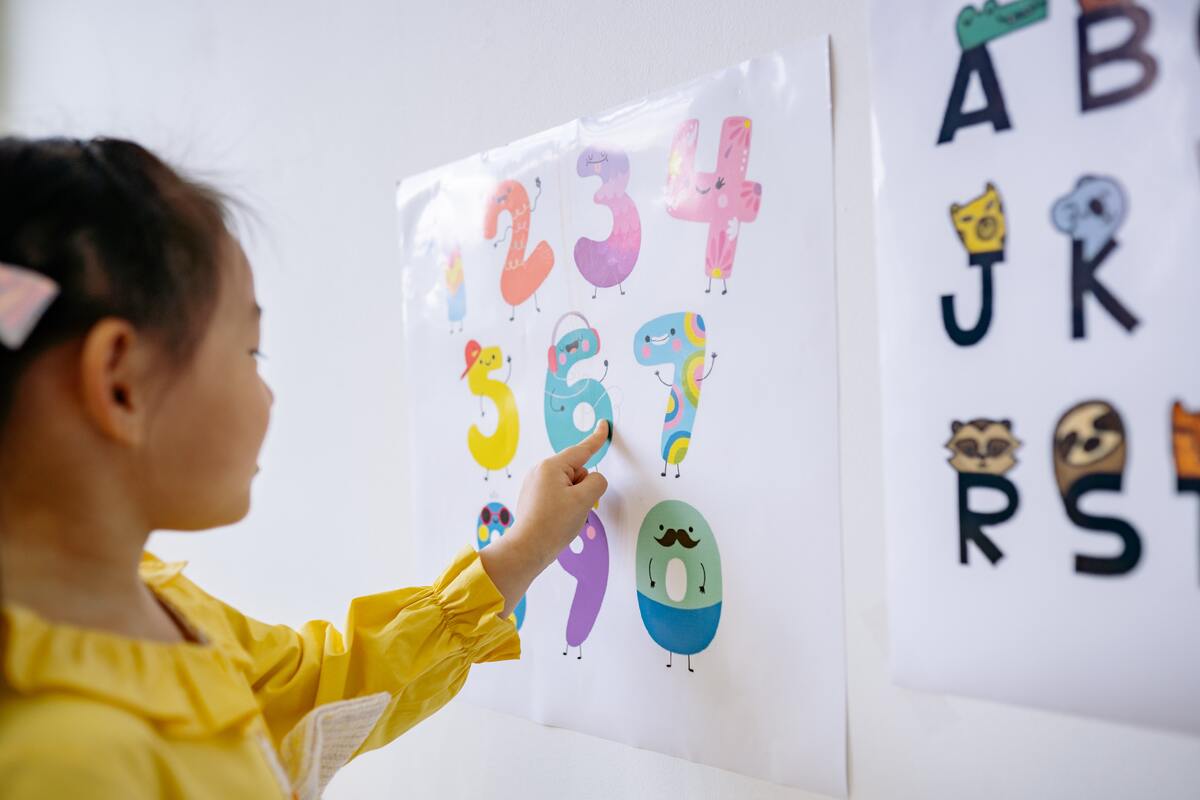
Math can be a challenging subject for any parent to help their child learn. Seeing your child’s frustration as they struggle through problems on a worksheet is tough — for you and them. If you’re looking for a way to help your child with math, here are some tips and tricks on how you can support them.
1) Start talking about math as early as possible
Remember, it’s never too early to start building a solid foundation for future learning. Count numbers and find shapes and patterns with your toddlers. Ask preschoolers to help count the chocolate chips in their cookies. The possibilities are endless. The best time to start building a love for math is between the ages of 3 to 8. The earlier you introduce math, the more it becomes part of their daily life.
2) Make math fun
Math isn’t just worksheets, quizzes, and tests. Math is everywhere! Try to include math in your daily life by playing games. Card games and board games like Monopoly work great, or find a recipe and cook with your child using measuring tools. When you make math an everyday part of your life, math will come naturally to your child when they use it in the future.
3) Use what your child is already interested in to learn math
Excitement is the best teacher! Make math part of something your child likes. If your child likes animals, count how many animals there are at the zoo. Using aids like engaging animated lessons and games makes learning part of what your child already loves.
4) Have your child explain topics to you
Once a child is familiar with a concept, have them teach it to you. This way, your child can truly grasp a math concept, because they understand why things happen. When your child feels comfortable enough to explain math concepts to another person, it shows they have a deeper understanding. Being able to share their knowledge gives them confidence in what they’re currently learning — and in the future.
5) Support your child while they’re learning
It’s okay if your child takes time to learn something. Rushing a child to learn faster, or making them feel like they aren’t doing well, can create anxiety toward math and learning. Anxiety is one of the biggest challenges when learning math, even in adults. If your child is afraid of failing, they could shy away from learning in general — and no parent wants that. Getting a head start on learning and being supportive of your child can make them feel more at ease.
When your child is comfortable, excited, and given time, math no longer becomes something they’re forced to do, but an everyday part of their lives. Spark Math classes are a great way to support your child’s learning, and they provide an engaging educational experience to help learning become second nature to your child.
Spark Math online classes are designed for K2 to P4 students. Students can look forward to animated explanations and highly interactive lessons that help them to master math heuristics. Sign up for a FREE trial class to experience Spark Math today!




